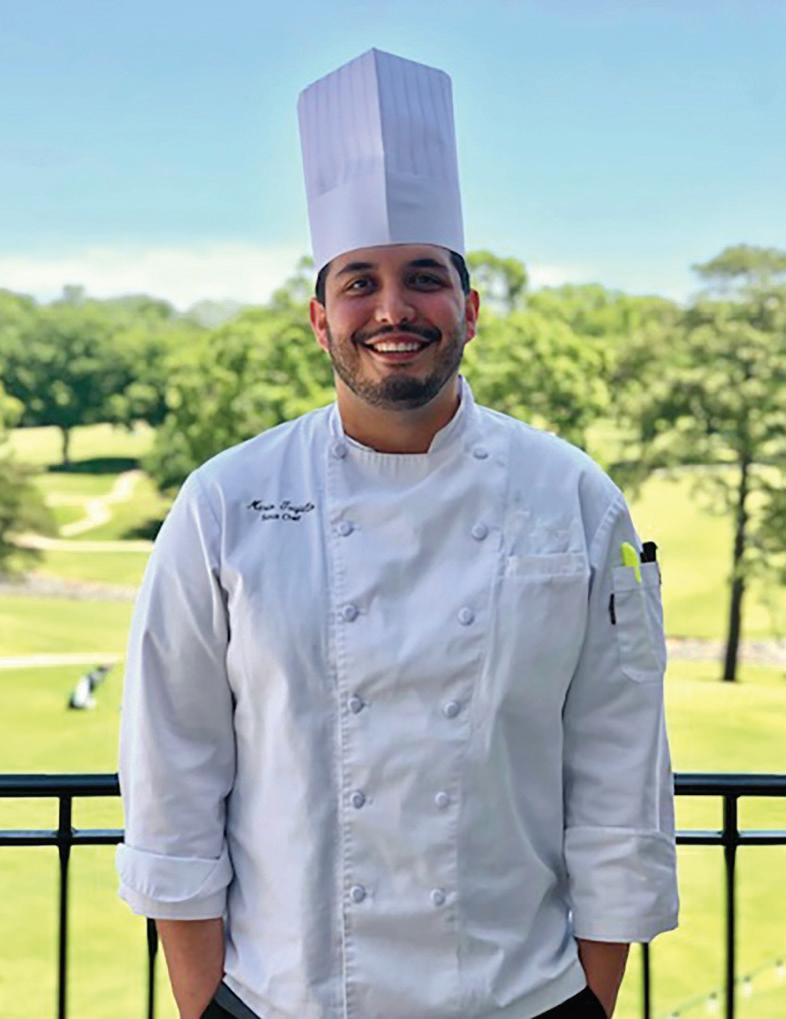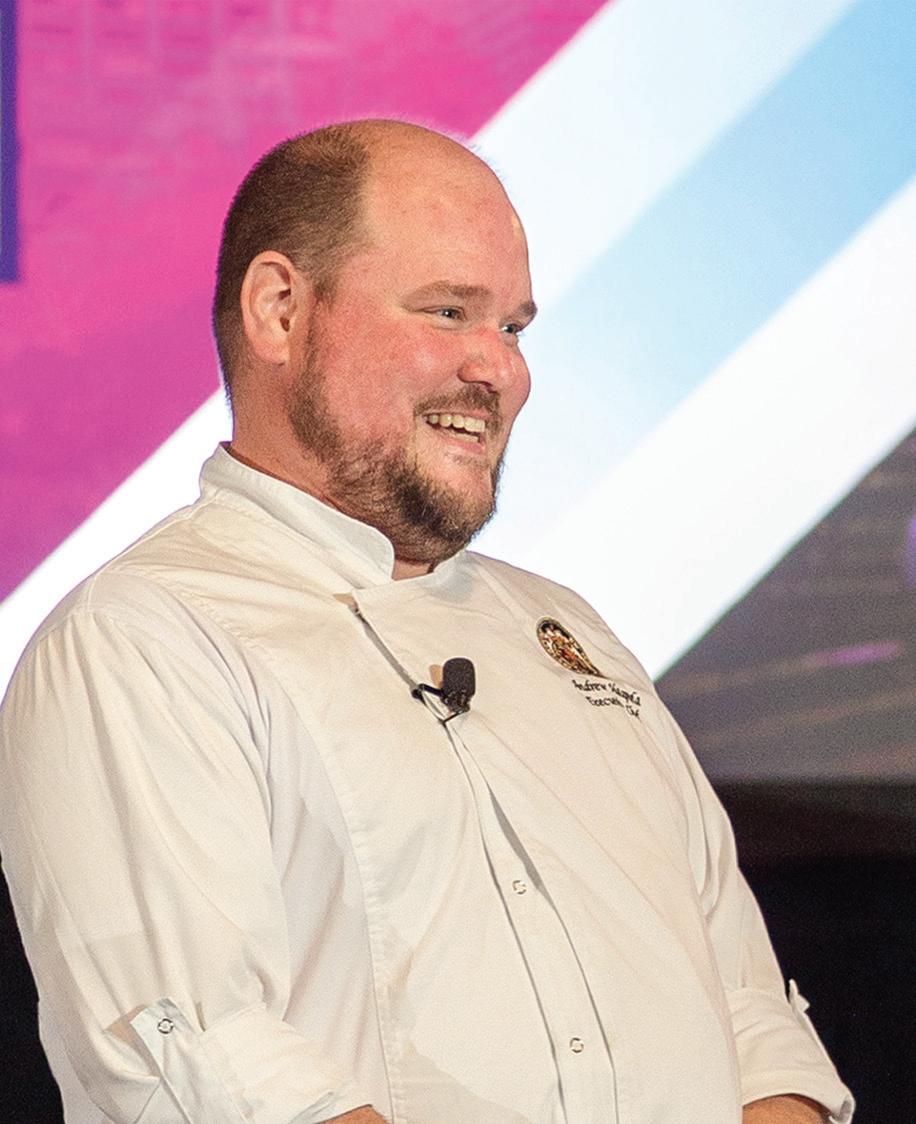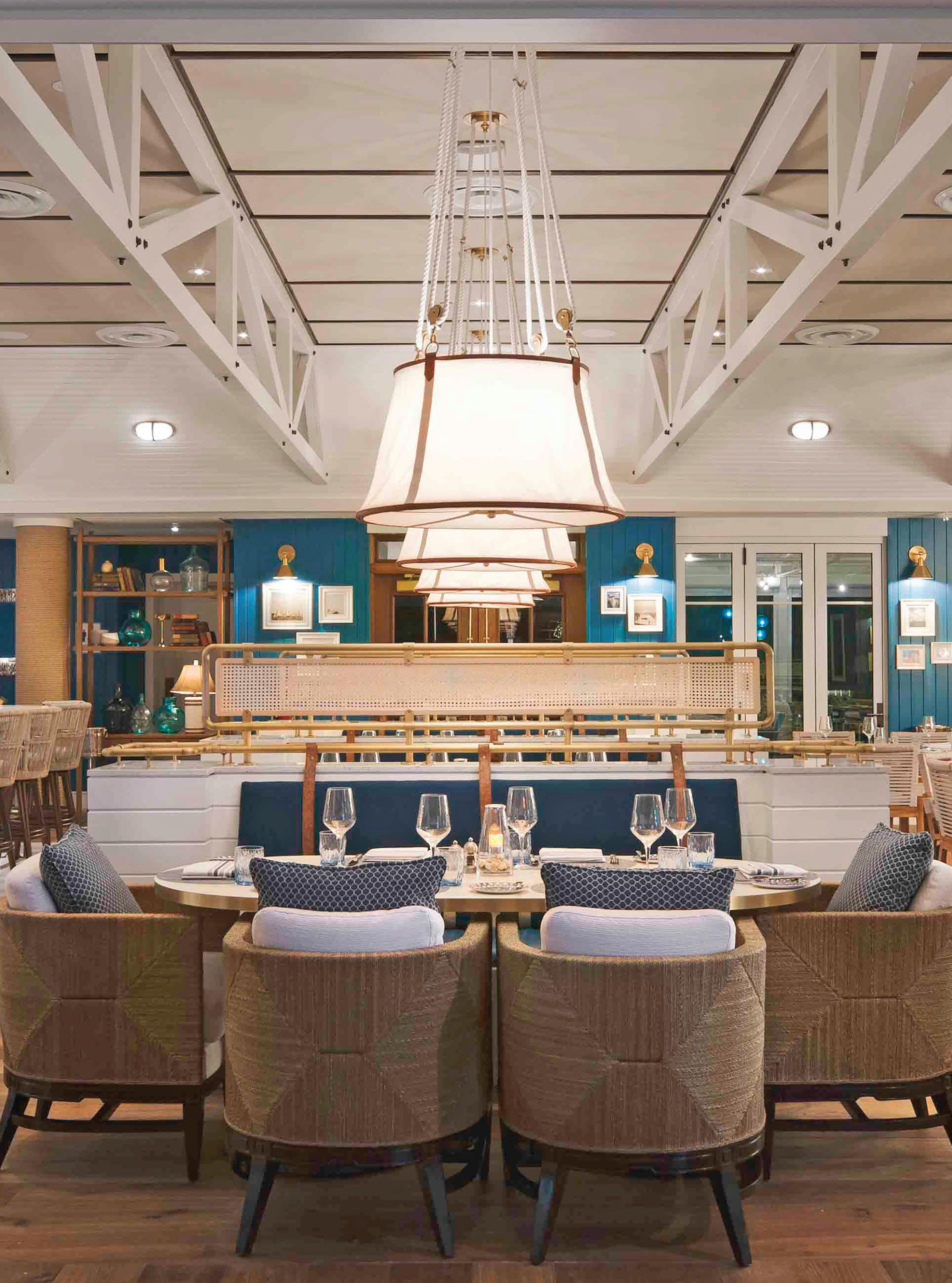
3 minute read
Next-Gen Club Culinary LEADERS
By Isabelle Gustafson, Senior Editor
The Latest Wave Of Club
CULINARY LEADERS is spearheading a paradigm shift by embracing new technology and diverse perspectives. They’re promoting work-life balance while remaining steadfast in their commitment to enhancing their club’s culinary program, elevating the craft of cooking and fostering a supportive and collaborative team culture.
This generation came of age in the industry at a pivotal time—on the cusp of a new kind of kitchen where the level of toxicity normalized for years was beginning to wane.
“I watched that transition,” says Chloe Dykes, Executive Chef of Lexington (Ky.) Country Club. “The idea of a ‘rite of passage’ in the kitchen is entirely changing.”
Dykes became Executive Chef a little over a year ago after serving for six years at Lexington CC under three di erent executive chefs, working her way up from AM line cook.
“I’m the [club’s] first female Executive Chef in 122 years,” says Dykes. “I am also the youngest Executive Chef we’ve ever had. I feel fortunate that they invested in me.”
After a “di cult but rewarding” year composing a “tight-knit team,” she’s utilizing her experiences in the industry to establish a new leadership style.
“Too many cooks are used to coming into a kitchen and not feeling valued,” Dykes says. “I take pride in caring for my team more than I ever was.” While she’s been told this is a weakness, so far, it’s benefitted her and the club.
A Healthier Environment
While there can “sometimes be a stigma, a negative perception of being too close with your sta ,” Mario Trujillo, Executive Sous Chef of Cullasaja Club (Highlands, N.C.), says he’s fortunate to have had several chefs who’ve looked out for him and guided him throughout his career.
Among them is Cullasaja’s Executive Chef, Scott Craig, CEC, CCA, WCMC; the two also worked together at Myers Park Country Club (MPCC) in Charlotte, N.C.

Trujillo says his relationship with Craig goes beyond a good working relationship and extends to a great friendship. “He is invested in me professionally and personally,” says Trujillo. “My success is his success—and I try to [apply that same mindset] with my sta .”
Andrew Haapala, also an MPCC alum, was promoted to Executive Chef of The Country Club of Virginia (Richmond, Va.) this past October, after serving nine years as the club’s executive sous chef.

As executive chef, Haapala says he aims to lead by example but also tries to be “a bit of a shield” for his sta .
“[We] also have to understand that, eventually, everyone underneath [us] needs to grow,” he says. “I want to be kind of a chef-factory here at The Country Club of Virginia. We have a phenomenal operation built on the shoulders of many great chefs before me, and I want to keep that going.”
Already, at least five chefs de cuisine he’s worked with have gone on to be executive chefs at other operations.
Devonnare Burgos has been an integral part of Detroit Athletic Club’s culinary team for seven years, working her way up to the position of Sous Chef, now serving under Executive Chef Shawn Loving, CMC.

Burgos believes approachability is key for any leader; it’s a skill she shares with Loving.
“It’s easy to ask him questions, pick his brain, and find out his expectations,” she says. “I think being approachable and empathetic, understanding di erent people’s personalities and abilities, is very important.”
Like Dykes, Burgos says she started her culinary career at a critical time in the industry. “I felt like it was a turning point,” she says. “Some of the chefs were still very hardcore—don’t talk, just do.” These days, she says, “it’s a healthier environment.”
As sous chef, she makes a point to work alongside all members of her team. “I’m not dictating,” she says. “I’m doing everything with them.”
A Common Goal
Leadership and connecting with di erent generations, Trujillo says, is about reminding everyone of the common goal—and understanding there could be di erent ways of achieving it.
“Just because somebody doesn’t do things my way doesn’t mean their way is wrong,” he says.
At Cullasaja, Trujillo leads many cooks on J-1 and H-2B visas.
“There’s a lot of training and handson guidance,” he says. “After new hires have familiarized themselves with their role and the operation, I’ll meet with them to discuss their goals and what they aim to achieve in the position.”
Setting meetings these days is digital. From kitchen equipment to scheduling to social media, technology is constantly changing.
“That’s one thing I think that we, as younger chefs, have a leg up on,” notes Haapala. This generation grew up with technology not available to older chefs during their formative years.
The trick now is recognizing when technology, like cell phones, is being used as a distraction rather than a tool.
“Put the recipe in, send your wife a message, whatever it is,” Haapala says. “Just wash your hands after.”
Technology, work-life balance and kitchen culture are key generational di erences in the new culinary world. Still, one thing unites chefs of all ages, says Dykes, whose team spans more than six decades.
“[Everyone] just wants to be heard,” she says.
Now, Dykes is striving to create a supportive environment where her sta feels comfortable expressing themselves, allowing her to give them the attention they need to continue to grow as culinarians.
“[Some] might want to be heard in a di erent way,” she says. “Some might need a little bit more of your time. ... But I give them the space to know that I’m listening.” C+RC











